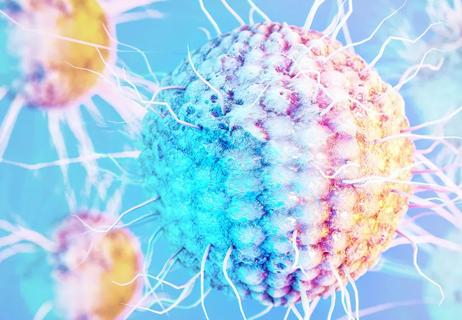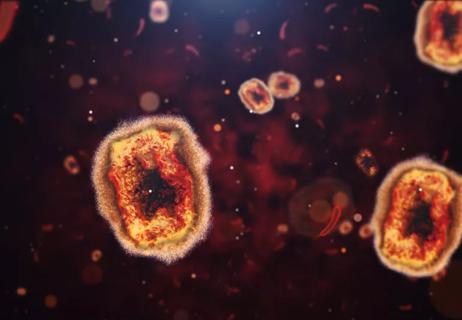Start slowly with clear fluids, and then move to bland, easy-to-digest foods

When the stomach flu hits, you know how miserable it can be to try to eat anything. But even if you feel like a zombie, you are, in fact, still human. And humans need food and fluids to recover.
Advertisement
Cleveland Clinic is a non-profit academic medical center. Advertising on our site helps support our mission. We do not endorse non-Cleveland Clinic products or services. Policy
But when you’re in the throes of nausea, vomiting and diarrhea from the stomach flu, food may be the last thing on your mind. After all, it can be tough to imagine getting anything down when you’ve seen it coming back up so recently. And that’s OK.
“If you’re down with a stomach bug and don’t feel like eating yet, don’t push it,” family physician Laura Lipold, MD, says. “Try to focus first on recovering, resting and staying hydrated.” Food can come later.
But what should you drink and eat when you have the stomach flu? And when? And what will make matters worse? Dr. Lipold shares advice to get you back on your feet again.
The stomach flu — otherwise known as viral gastroenteritis — is an entirely different beast from the common flu, or influenza. Influenza is a respiratory virus. It comes with symptoms like coughs, fevers and a runny or stuffy nose.
The stomach flu is the one that has you reaching for the bucket or running to the bathroom.
And the biggest problem with the stomach flu is that vomiting and diarrhea deplete your body’s fluids. That leaves you at risk for dehydration, which can really complicate things. So, when the stomach flu hits, food isn’t your first concern. Keeping up your fluids is.
Advertisement
“Severe dehydration could mean a trip to the hospital to receive IV fluids. So, it’s important to try to stay hydrated if you can,” Dr. Lipold shares.
Wait until about two hours have passed since your last episode of vomiting, and start with small, frequent sips so as not to overwhelm your belly. Dr. Lipold suggests:
For most people, it’ll take several hours after you’ve finished vomiting before food seems even remotely appealing.
But after things begin to settle down, your body will start giving you a gentle nudge that it’s feeding time again.
Wait until you’re able to keep down fluids before trying to eat foods. And even then, you’ll want to tread slowly and be thoughtful about how you begin to refuel. The right foods can help your body recover. The wrong ones can cause cramping and stomach pain or send you racing back to the bathroom all over again.
“I always advise people to eat only when they feel up to it when they have the stomach flu and even then, stick to small meals and snacks at first,” Dr. Lipold says. “If you’re still actively vomiting or having a hard time keeping down clear fluids, it’s not the time to try to eat yet.”
She shares some examples of easy-on-the-belly foods for when you’re fighting the stomach flu.
Some of the best foods for the stomach flu are foods that are soft, bland and easy to digest. When you’re coming off a bout of nausea and diarrhea, your belly will be happiest if it doesn’t have to work too hard.
That’s when the BRAT diet comes into play. BRAT stands for:
The BRAT diet may not be the most exciting or enticing menu perhaps. But mild and easy on the belly? Absolutely.
That’s because these foods are good sources of complex carbohydrates, which are gentle on your stomach and some of the best choices to start to replace nutrients you lost in your (many) trips to the bathroom.
“Complex carbohydrates digest slowly into your bloodstream, so they can help your body recover without putting too much effort on your taxed GI system,” Dr. Lipold explains. “They also contain vitamins, minerals and fiber that your body needs.”
In addition to the BRAT diet, other complex carbs for stomach flu recovery include:
Foods that have high water content can also help as you start to recover from the stomach flu. They’ll also help rehydrate you at the same time. Try foods like:
Advertisement
Ginger can help ease the way that food travels through your gastrointestinal (GI) tract, which can help calm your vomiting reflex.
Some good sources of ginger for stomach flu relief include:
What about the famous ginger ale fix? Not likely to help.
“Many people stand by ginger ale as a remedy for nausea, but in truth, it doesn’t contain enough real ginger to actually settle your stomach any better than other clear liquids,” Dr. Lipold reports. “And the carbonation can make bloating, gas and indigestion worse.”
What you don’t eat can be as important as what you do eat when you have the stomach flu. Some foods can be too much for your already overworked belly.
While you’re recovering, you’ll want to avoid foods that burden your GI tract. That includes things like:
Prolonged nausea and vomiting can take a big toll on your body. Talk with a healthcare provider if you:
Advertisement
The best way to recover from the stomach flu is with plenty of rest and plenty of liquids. Eat when you can, and take it easy. Your body has been through a lot.
Advertisement
Learn more about our editorial process.
Advertisement

Yes, but symptoms can be easy to miss

You can catch this highly contagious virus through contaminated food, water, droplets and more

Use a bleach solution to sanitize surfaces like doorknobs, counters, toilets and light switches

It starts off like a cold and then progresses to a rash that can last about 10 days

Transmission typically involves skin-to-skin contact, but the virus can also linger on surfaces

Time of onset and duration of symptoms tell the story

It’s not just smoking and genetics that can increase your risk of cancer

Mpox (monkeypox) is transmitted through skin-to-skin contact, including sex

Wearing a scarf, adjusting your outdoor activities and following your asthma treatment plan can help limit breathing problems

Your diet in the weeks, days and hours ahead of your race can power you to the finish line

When someone guilt trips you, they’re using emotionally manipulative behavior to try to get you to act a certain way